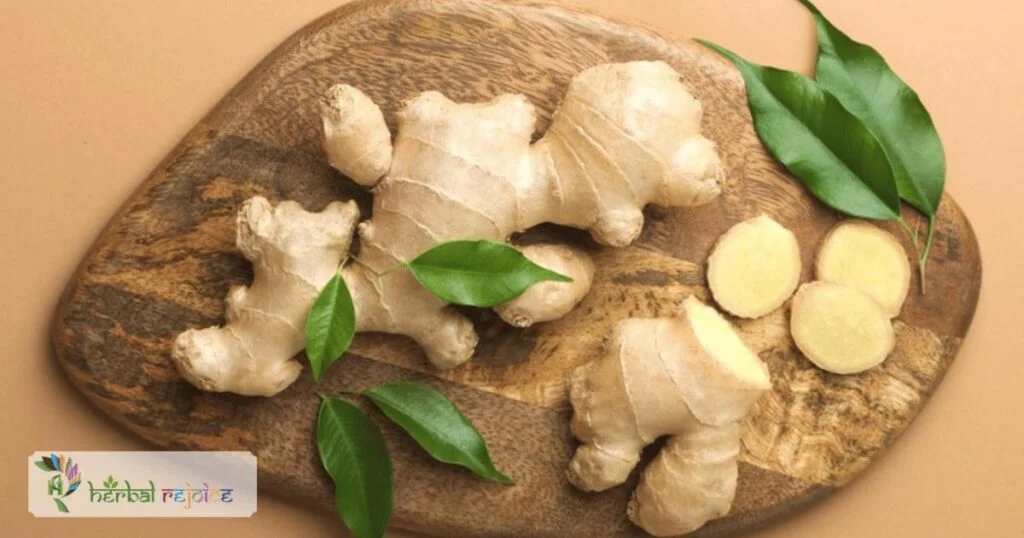Introduction
Ginger (Zingiber officinale) is a flowering plant that is native to Southeast Asia and is now widely cultivated in various regions of India, including Kerala, Andhra Pradesh, Uttar Pradesh, West Bengal, and Maharashtra.
It has been used for centuries in Ayurvedic, Unani, and Siddha medicine systems, known for its various medicinal properties.
Ginger is used to treat diarrhea, colds, influenza, migraines, cluster headaches, dyspepsia, loss of appetite, anemia, rheumatism, cough, and dyspnea.
Names and Habitat
In Ayurveda, ginger is referred to as Aardraka, Aadrikaa, Shrngibera, shrngavera, Katubhadra when it is in the fresh rhizome form, and Shunthi, Naagara, Naagaraa, Naagaraka, Aushadha, Mahaushadha, Vishvaa, Vishvabheshaja, Vishvaaushadha when it is in the dried rhizome form.
In Unani medicine, it is called Zanjabeele-Ratab and Al-Zanjabeel for the fresh rhizome, and zanjabeel and Zanjabeel-eyaabis for the dried rhizome.
In Siddha medicine, it is known as Inji, Allam, Lokottai for the fresh rhizome, and chukku, Sunthi for the dried rhizome.
Traditional Health Benefits Of Ginger
Ginger has a wide range of actions and medicinal uses. It is known to have antiemetic, antiflatulent, hypocholesterolaemic, anti-inflammatory, antispasmodic, expectorant, circulatory stimulant, diaphoretic properties.
It can also increase the bioavailability of prescription drugs. Ginger is commonly used for the treatment of irritable bowel and diarrhea, colds and influenza. It has also shown promising results in relieving migraines and cluster headaches.
The Ayurvedic Pharmacopoeia of India recommends dried rhizomes for the treatment of dyspepsia, loss of appetite, tympanitis, anemia, rheumatism, cough, and dyspnea.
Fresh rhizomes are used for constipation, colic, edema, and throat infections.

Applications
Some key applications of ginger include its use as a remedy for dyspepsia and prevention of motion sickness, as recommended by the German Commission E.
It is also used for vomiting during pregnancy, anorexia, bronchitis, and rheumatic complaints, according to The British Herbal Compendium.
Ginger is also used as a post-operative antiemetic.
Chemical Constituents Of Ginger
The rhizome of ginger contains an essential oil that is rich in monoterpenes such as geranial and neral. It also contains sesquiterpenes like beta-sesquiphellandrene, beta-bisabolene, ar-curcumene, and alpha-zingiberene.
pungent principles of ginger are gingerols, shogaols, and related phenolic ketone derivatives. Other constituents found in ginger include diarylheptenones, diterpenes, gingesulphonic acid, and monoacyldigalactosyl glycerols.
Key Components Of Ginger
Gingerols and shogaols have been shown to have various therapeutic effects. They can suppress gastric contractions, reduce gastric secretion, and alleviate vomiting.
These compounds also have sedative, anti-inflammatory, antipyretic, analgesic, hypotensive, and hepatoprotective properties. The cardiotonic effects of ginger have been attributed to 6-and 8-shagaols and gingerols.
However, the antithrombotic effects of ginger are yet to be confirmed. Ginger’s ability to decrease platelet aggregation contributes to its antimigraine effect. It is also a potent inhibitor of prostaglandins, which enhances the release of substance P from trigeminal fibers.
Types Of Ginger
When it comes to the quality of ginger, Indian ginger is considered the second best after Jamaican ginger.
There are three main types of Indian ginger. Cochin ginger is light brown or yellowish grey, Calicut ginger from Malabar is orange or reddish brown and resembles African ginger, and Kolkata ginger is greyish brown to greyish blue.
Conclusion
In conclusion, ginger (Zingiber officinale) is a highly valued medicinal plant with a long history of use in traditional medicine systems. It offers a wide range of health benefits, including antiemetic, anti-inflammatory, and circulatory stimulant properties.
Ginger can be consumed fresh or dried and is commonly used to treat various digestive disorders, respiratory issues, and pain relief.
It is a versatile herb that can be incorporated into various dishes and beverages to enhance both flavor and health.
Frequently Asked Questions (FAQs)
What is ginger?
Ginger is a flowering plant native to Southeast Asia that is widely cultivated in various regions of India.
What medicinal properties does ginger have?
Ginger has various medicinal properties, including antiemetic, antiflatulent, anti-inflammatory, and circulatory stimulant properties.
What are the traditional medicine systems in which ginger is used?
Ginger has been used in Ayurvedic, Unani, and Siddha medicine systems for centuries.
What are the different names for ginger in Ayurveda?
In Ayurveda, ginger is referred to as Aardraka, Aadrikaa, Shrndigera, shrngavera, Katubhadra when in fresh rhizome form, and Shunthi, Naagara, Naagaraa, Naagaraka, Aushadha, Mahaushadha, Vishvaa, Vishvabheshaja, Vishvaaushadha when in dried rhizome form.
What are the different names for ginger in Unani medicine?
In Unani medicine, ginger is called Zanjabeel-e-Ratab and Al-Zanjabeel for the fresh rhizome, and zanjabeel and Zanjabeel-eyaabis for the dried rhizome.
What are the different names for ginger in Siddha medicine?
In Siddha medicine, ginger is known as Inji, Allam, Lokottai for the fresh rhizome, and chukku, Sunthi for the dried rhizome.
What are some common uses of ginger?
Ginger is commonly used for the treatment of irritable bowel, diarrhea, colds, influenza, migraines, cluster headaches, dyspepsia, loss of appetite, anemia, rheumatism, cough, and dyspnea.
What is the recommended use of ginger for motion sickness and dyspepsia?
Ginger is recommended by the German Commission E for the prevention of motion sickness and as a remedy for dyspepsia.
Is ginger useful for relieving vomiting during pregnancy?
Yes, ginger is used to relieve vomiting during pregnancy.
What are the key constituents found in ginger?
Ginger contains essential oils rich in monoterpenes like geranial and neral. It also contains sesquiterpenes, pungent principles like gingerols and shogaols, and other constituents like diarylheptenones, diterpenes, gingesulphonic acid, and monoacyldigalactosyl glycerols.
What therapeutic effects do gingerols and shogaols have?
Gingerols and shogaols have various therapeutic effects, including suppressing gastric contractions, reducing gastric secretion, alleviating vomiting, and exhibiting sedative, anti-inflammatory, antipyretic, analgesic, hypotensive, and hepatoprotective properties.
What contributes to ginger’s antimigraine effect?
Ginger’s ability to decrease platelet aggregation and inhibit prostaglandins contributes to its antimigraine effect.
How is the quality of Indian ginger compared to Jamaican ginger?
Indian ginger is considered the second best after Jamaican ginger in terms of quality.
What are the three main types of Indian ginger?
The three main types of Indian ginger are Cochin ginger, Calicut ginger from Malabar, and Kolkata ginger.
What are the different characteristics of these types of Indian ginger?
Cochin ginger is light brown or yellowish grey, Calicut ginger is orange or reddish brown and resembles African ginger, and Kolkata ginger is greyish brown to greyish blue.
How can ginger be consumed?
Ginger can be consumed fresh or dried. It can be incorporated into various dishes and beverages to enhance both flavor and health.
What are some common digestive disorders that ginger is used to treat?
Ginger is commonly used to treat dyspepsia, constipation, colic, and tympanitis.
What respiratory issues can ginger help with?
Ginger can help with respiratory issues such as cough, throat infections, and dyspnea.
Is ginger effective for pain relief?
Yes, ginger has shown promising results in relieving migraines, cluster headaches, and rheumatic complaints.


